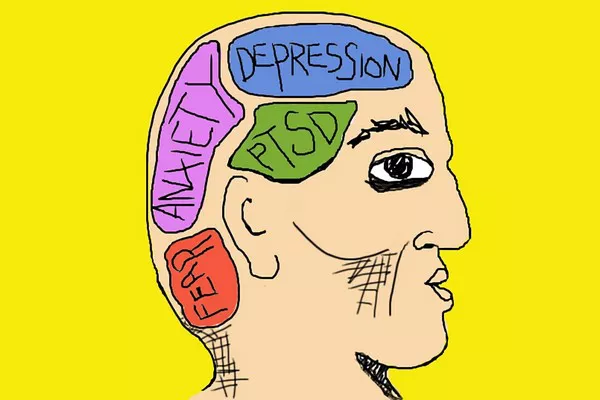Natural disasters, whether they manifest as raging wildfires forcing mass evacuations or devastating floods along coastlines, unleash not only immediate physical challenges but also profound emotional and psychological trauma that can endure long after the events have subsided, caution mental health experts.
However, there are proactive measures that individuals can take to mitigate these effects and safeguard their mental well-being.
“Amid a natural disaster, our initial focus understandably centers on physical safety, which is of paramount importance,” stated Julia Payson, Executive Director of the Canadian Mental Health Association’s Vernon, B.C. branch. “Yet, often overlooked initially or concurrently set aside, is the mental toll these disasters exact. Be it the direct impact of evacuation orders or residing in the proximity of these alerts and fires, the mental repercussions can extend for years.”
Payson, a resident of Vernon, elucidated how ongoing wildfires in her province have provoked a gamut of emotions among individuals, including anxiety, fear, sorrow, detachment, and fury – entirely standard reactions to such catastrophic events.
“The emotional rollercoaster one endures when fires loom nearby can be overwhelming. Oscillating between the urge to remain informed and the desire to tune out the news is common,” Payson remarked. “We’ve witnessed these fires move with alarming speed. While relief surges when a fire ceases its advance, it’s tempered by the realization that it’s likely headed elsewhere. This struggle can lead to feelings of guilt.”
With the escalating impact of climate change, resulting in more frequent and severe incidents such as wildfires, floods, and heatwaves, Health Canada has cautioned about elevated mental health risks for a substantial portion of the population. These repercussions may encompass feelings of desolation, compromised community ties, and even heightened contemplation or attempts of suicide.
Dr. Jude Mary Cenat, a professor in the School of Psychology at the University of Ottawa, elucidated that post a natural disaster, many individuals encounter distressing, involuntary recollections along with flashbacks, nightmares, and emotional anguish.
“Some individuals attempt to evade these emotions, thoughts, occurrences, and locations evoking memories of the disaster,” he elaborated.
Substance misuse may also manifest as a symptom, noted Nicole Sadler, a clinical psychologist from Australia with expertise in the mental ramifications of natural disasters.
Sadler indicated that the mental aftermath of disasters like wildfires can vary in duration, ranging from a few days or weeks to several months or even years for some individuals.
“Difficulties in sleeping, heightened agitation, and a pervasive sense of insecurity may emerge. This unease doesn’t solely emanate from the disaster itself, but also from its peripheral impacts, encompassing disruptions to communities, livelihoods, and employment,” Sadler elaborated.
Additionally, a connection between natural disasters and post-traumatic stress disorder (PTSD) has been identified, albeit in a minority of affected individuals, Sadler clarified.
Numerous studies have substantiated a surge in post-traumatic stress, depression, and anxiety in the aftermath of disasters, including wildfires. A 2019 study from the University of Alberta illustrated that 18 months after the 2016 Fort McMurray wildfires, a considerable portion of students in Grades 7 through 12 continued to grapple with trauma. Over one-third of students experienced PTSD symptoms, 31% reported depression, and 15% exhibited signs of alcohol or substance use disorders.
Drawing attention to another study, Sadler underscored its focus on the repercussions of the destructive bushfires in New South Wales during 2019-20 on children. The study unveiled that communities severely affected by wildfires witnessed declines in children’s academic performance alongside an upsurge in financial hardships and domestic violence incidents.
According to Cenat, a crucial aspect of restoring mental health following a natural disaster is normalizing the emotions experienced by individuals.
“Experiencing psychological distress in the aftermath of losing one’s home and environment is normal. Your children may not be able to attend the same school they did for the past two years. By normalizing these symptoms and guiding individuals on overcoming and healing from them, we can pave the way for recovery,” he asserted.
Fostering social connections and seeking assistance constitute vital steps, as affirmed by Sadler.
“The quality of an individual’s social connections often serves as a key indicator of recovery from significant events like natural disasters. Reestablishing a sense of routine and balance can be restorative, be it through rekindling social interactions, reintegrating children into school, or participating in community activities,” Sadler emphasized.


